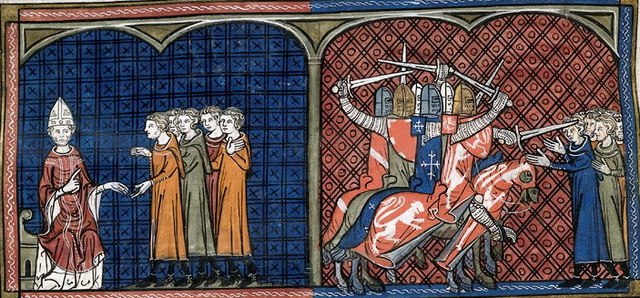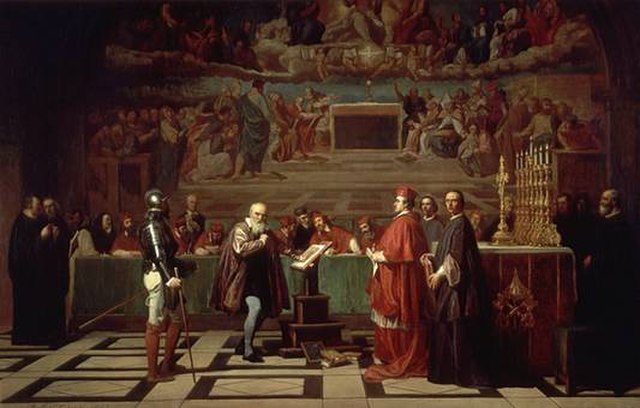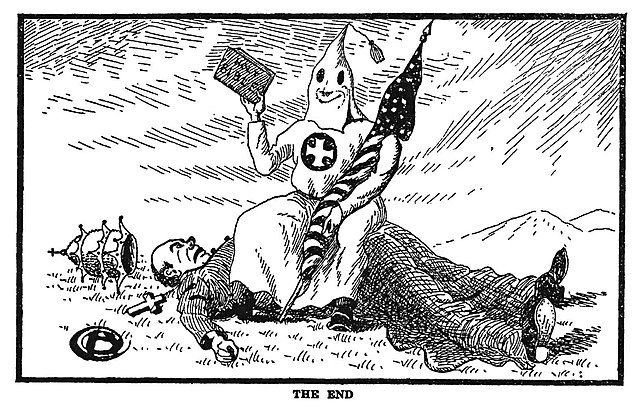Criticism of Christianity
Criticism of Christianity has a long history which stretches back to the initial formation of the religion in the Roman Empire. Critics have challenged Christian beliefs and teachings as well as Christian actions, from the Crusades to modern terrorism. The arguments against Christianity include the suppositions that it is a faith of violence, corruption, superstition, polytheism, homophobia, bigotry, pontification, abuses of women's rights and sectarianism.
Pope Innocent III excommunicating the Albigensians (left), Massacre against the Albigensians by the crusaders
The Woman's Bible (1895) is a collection of critical commentaries on texts within chapters of the Bible referring to women
The St. Bartholomew's Day massacre of French Protestants in 1572
Galileo affair. Joseph-Nicolas Robert-Fleury, Galileo before the Holy Office, 19th-century
Christian terrorism, a form of religious terrorism, comprises terrorist acts which are committed by groups or individuals who profess Christian motivations or goals. Christian terrorists justify their violent tactics through their interpretation of the Bible and Christianity, in accordance with their own objectives and worldview.
The Gunpowder Plot Conspirators (1605)
Ku Klux Klan members conduct a cross burning in Colorado, 1921.
Rev. Branford Clarke's illustration in the 1926 book Klansmen: Guardians of Liberty portrays the Klan as slaying Catholic influence in the US.







